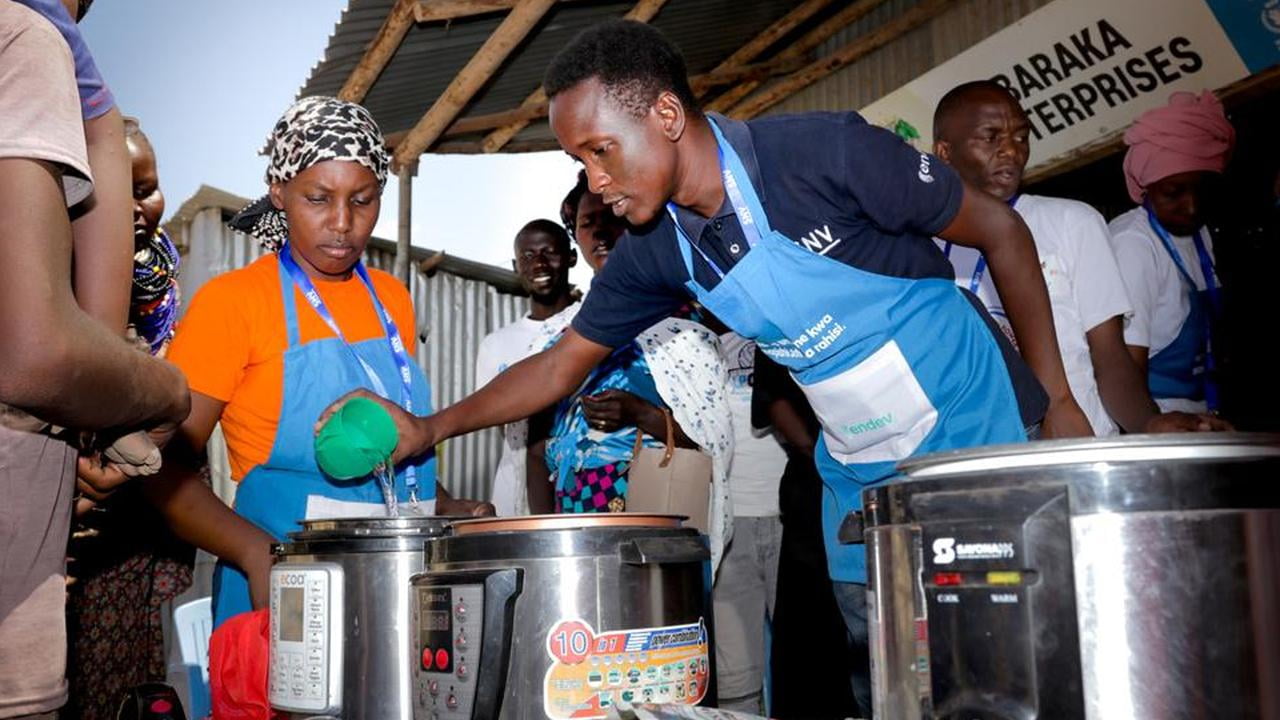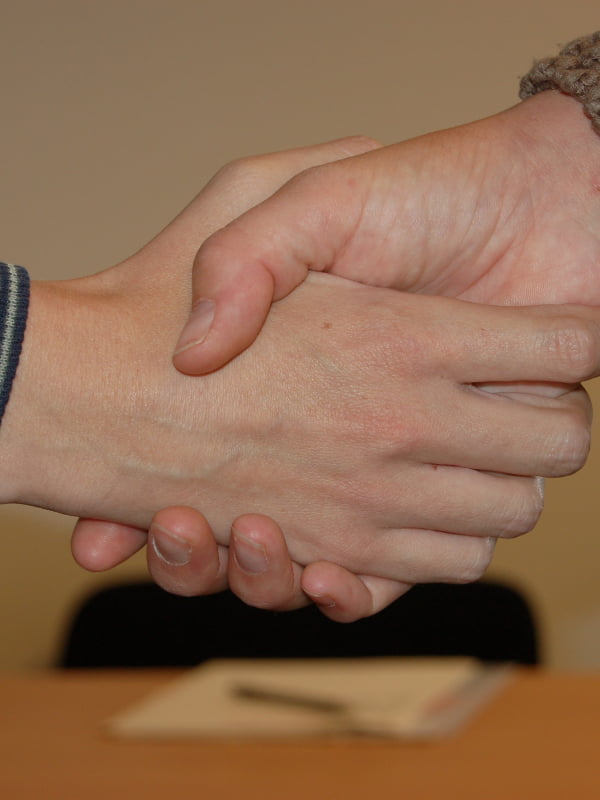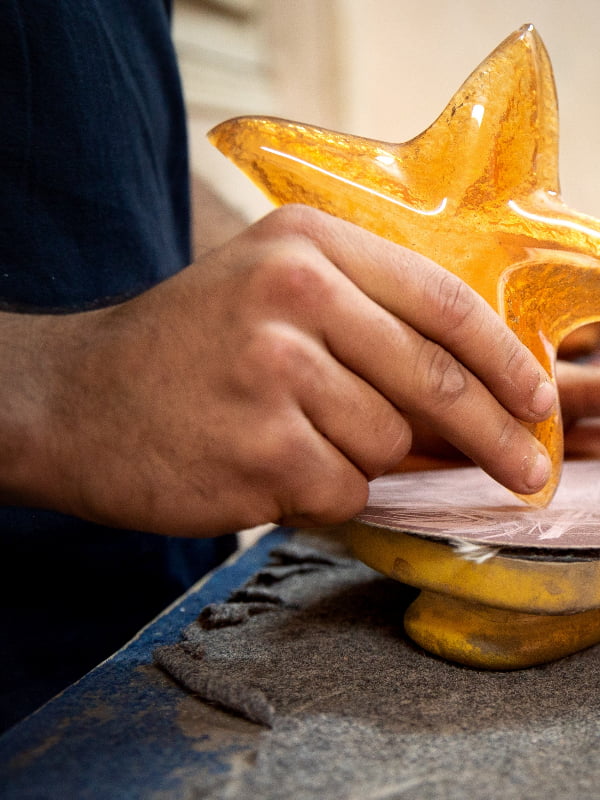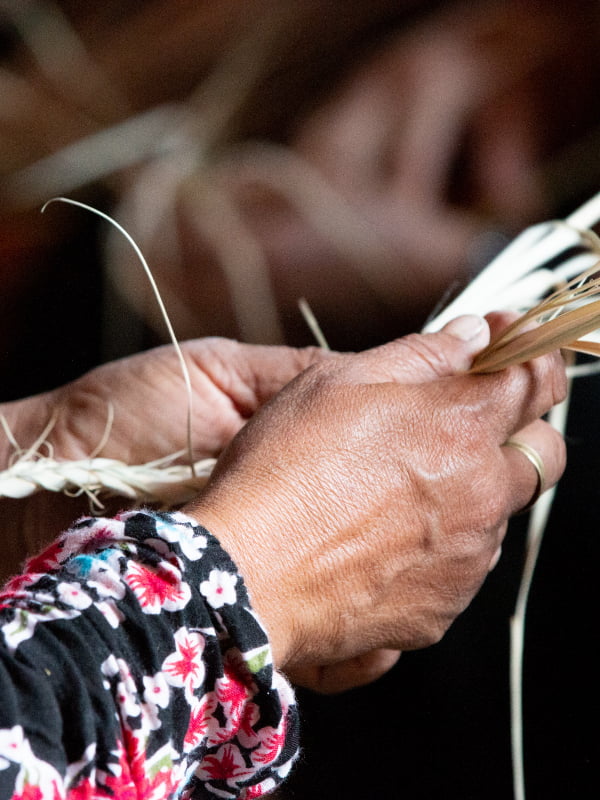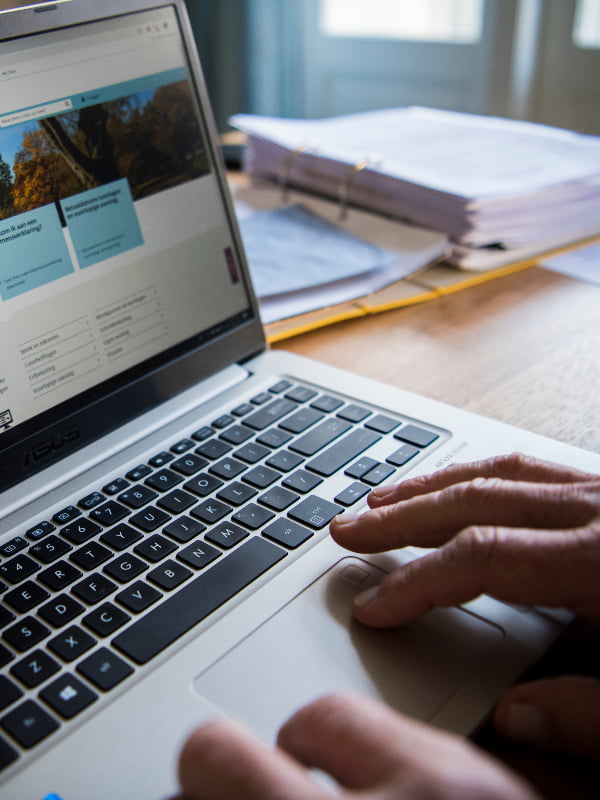Energising Development - EnDev
Energising Development (EnDev) delivers permanent access to modern energy technologies and services. The programme focuses on households, social institutes, and small to medium-sized enterprises in low and middle-income countries. EnDev's projects take place in 20 countries in Africa, Asia, and Latin America.
What does EnDev do?
EnDev supports market development for modern energy facilities, especially in rural areas. For example, renewable energy for cooking, lighting and charging mobile phones. Part of the programme involves training and coaching manufacturers and retailers. They learn about cleaner cooking solutions and small solar energy systems. The programme also supports the construction of electricity connections via mini-grids and stimulates the production of biogas for household purposes.
EnDev focuses on supply and demand. On the demand side, the programme creates awareness and supports the introduction of new business models such as PAYGO, consumer loans, and so on. On the supply side, EnDev helps ensure high-quality energy products are available.
Calls for proposals
The EnDev programme has no subsidy component. It publishes specific calls for proposals in the form of results-based financing on the EnDev website.
EnDev is always looking for partners to increase access to modern energy. If you are interested in becoming a partner, contact us.
EnDev results
By the end of 2024, EnDev had facilitated access to modern energy services and technologies for:
- 33.9 million people,
- 35,480 social infrastructures, including schools and health centres, and
- 113,420 micro, small and medium-sized enterprises.
EnDev aims to achieve sustainable access to modern energy for 36 million people by 2025. For Endev outcomes and impacts, visit the EnDev website. On our Development Cooperation Projects database, you can find an overview of EnDev projects.
EnDev in practice
Introducing electric pressure cookers in Kakuma
Most of the 258,000 people living in and around refugee settlement Kakuma, Kenya, still use traditional cooking methods. These have a negative impact on health, gender equality and the environment. With access to electricity in the settlement through a solar-powered mini-grid system, EnDev saw the opportunity to introduce electric pressure cookers (EPCs) as an alternative to biomass cooking.
Clean cooking for a better future in Nairobi
About 5.7 million people live in Nairobi. 4 million of them still use traditional cooking methods. With support from EnDev, we work with Kenyan partners to provide a cleaner way of cooking.
Find out more by watching the video below.
00:00:04:00 - 00:00:05:16
Look at those buildings.
00:00:06:01 - 00:00:08:07
Those doors, those windows.
00:00:08:19 - 00:00:11:09
More than 5 million people live in Nairobi,
00:00:11:23 - 00:00:15:21
and 75% of them rely on unhealthy cooking methods.
00:00:16:17 - 00:00:18:09
Now imagine this.
00:00:19:02 - 00:00:22:15
What if just 10% of them decided to make a change?
00:00:23:23 - 00:00:26:08
Can you picture the incredible impact that would have?
00:00:43:19 - 00:00:45:18
We are promoting electric cooking
00:00:45:18 - 00:00:48:13
to try and transition the population to the use
00:00:48:13 - 00:00:50:15
of electric appliances to cook.
00:00:51:08 - 00:00:53:17
My passion for electric cooking comes from personal experience,
00:00:53:17 - 00:00:55:00
My passion for electric cooking comes from personal experience,
00:00:55:11 - 00:00:58:14
having used this and seeing how beneficial it has been to my family.
00:01:00:03 - 00:01:03:22
I can put my food in the electric pressure cooker
00:01:03:22 - 00:01:07:22
and go back to sit with my kids, reconnect after a long day at work.
00:01:12:07 - 00:01:15:08
Some of the advantages of cooking with cleaner solutions
00:01:15:08 - 00:01:18:05
is the reduction in household air pollution.
00:01:23:00 - 00:01:26:02
People fear that electricity is expensive
00:01:26:02 - 00:01:27:21
and we are trying to demystify this
00:01:27:21 - 00:01:30:04
and encourage people to use these appliances.
00:01:30:04 - 00:01:31:21
We do live demonstrations and
00:01:31:21 - 00:01:33:22
we are currently working with Kenya Power
00:01:33:22 - 00:01:36:01
in developing an e-cooking tariff.
00:01:36:04 - 00:01:38:05
When I first started using this stove,
00:01:38:11 - 00:01:41:00
I thought it was expensive.
00:01:41:09 - 00:01:44:03
But once I gave it a try,
00:01:44:03 - 00:01:45:18
I realised it is affordable
00:01:45:18 - 00:01:47:05
and helps me save money.
00:01:47:08 - 00:01:50:16
Yes, at first, I was worried.
00:01:50:24 - 00:01:53:08
Here in Kenya, power outages are common.
00:01:53:10 - 00:01:54:18
What would I do in that case?
00:01:54:23 - 00:01:58:04
Then I discovered that when the power goes out,
00:01:58:04 - 00:02:02:14
the retained heat continues the cooking process and finishes the meal.
00:02:11:20 - 00:02:14:20
Clean cooking is not just about living healthy
00:02:14:20 - 00:02:17:19
and having a healthier cooking environment.
00:02:17:19 - 00:02:20:05
It is also useful for people in the business space,
00:02:20:05 - 00:02:23:16
especially commercial institutes and businesses.
00:02:24:16 - 00:02:27:24
This is faster than cooking with gas.
00:02:27:24 - 00:02:31:16
When you cover the pot and cook meat in it,
00:02:31:16 - 00:02:35:12
after about 40 minutes, the meat is ready.
00:02:35:21 - 00:02:38:04
Has it reduced your costs? - Yes, it has.
00:02:47:06 - 00:02:51:15
The shift to cleaner cooking habits will only happen with the right conditions.
00:02:54:07 - 00:02:57:14
Working with various partners is really crucial for our work.
00:02:58:11 - 00:03:01:12
This change is gradual and it will take a process.
00:03:01:20 - 00:03:06:08
So, we are just targeting at least 10% of the population by 2028.
00:03:11:08 - 00:03:12:17
As more doors open,
00:03:13:02 - 00:03:15:16
we are not just changing our cooking habits.
00:03:16:02 - 00:03:19:02
We are changing lives, our communities, and also the future.
Background
Around 4 billion people do not have access to electricity or modern cooking technologies. This has a serious impact on quality of life, income opportunities, the environment, health and education. EnDev focuses on providing access to modern, renewable energy. This helps strengthen socio-economic development and combat climate change. For more information on the EnDev programme, visit the EnDev website.
More information
EnDev is a strategic partnership of dedicated donors, partners and individuals. All work together to support social development and economic growth. Together, they provide access to modern, renewable energy in more than 20 countries. Partnership is the driving force behind EnDev's success. Germany, the Netherlands, Norway and Switzerland work together to accelerate energy access and socio-economic development.
The German Gesellschaft für Internationale Zusammenarbeit and the Netherlands Enterprise Agency coordinate EnDev. The Netherlands Enterprise Agency does this on behalf of the Netherlands Ministry of Foreign Affairs.
- Ministry of Foreign Affairs
